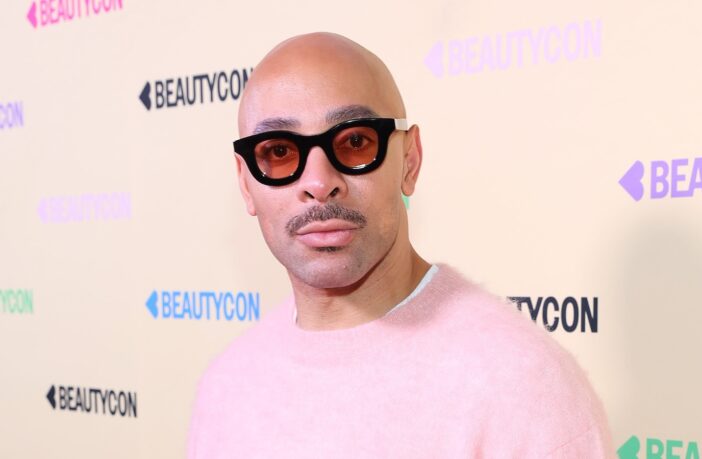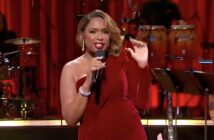Men and masculine presenting figures have been working behind the scenes in the beauty industry since its inception, acting as the building blocks for some of our favorite looks.
Renowned makeup artist Sir John is responsible for some of Beyoncé’s most iconic makeup looks. Ron Robinson is the cosmetic chemist behind Hailey Bieber’s Rhode skincare line. Celebrity makeup artist Keita Moore has worked magic on some of our favorite faces, like La La Anthony and Chlöe Bailey.
But despite the lengthy repertoires these men boast within the beauty ecosystem, men have remained largely behind the scenes—until now.
During Beautycon 2024 in Los Angeles, an event dedicated to connecting beauty lovers with influential brands and figures in the space, Sir John and beauty chemist Javon Ford were panelists for two of the speaker events. Having these men occupying such a front-facing realm of the beauty community was a notable change of pace, picked up by attendees from the event.
“[Typically], the beauty boys don’t get that much representation in the beauty space, and we get overlooked sometimes,” says Brendis Malik, a first-year attendee of Beautycon who was pleasantly surprised when he saw how inclusive and admittedly star-studded the panel was.
“Like, Sir John, he’s like, the one of the best. He’s the GOAT, he’s Beyonce’s artist. Like, please,” Malik told EBONY. “Seeing them have their moment was kind of like a pivotal moment,” he said. This sentiment was echoed by other attendees.
“There’s a lot of male presence. They’re doing makeup. They’re doing perfumes, body oils and different things like that,” said Beautycon attendee Jay Sommerville. “It’s great, open, and very inclusive. And I really enjoyed it,” he added.
When it comes to the ever-changing world of influencers and content creators, men make up around 20% of influencers, and the number is significantly smaller for Black men. You can factor in that these numbers are slashed even more when it comes to beauty creators. This is a complete 360 from how men show up in the beauty boardroom, where they represent 65% of all executives in the beauty industry, which notoriously preys upon the insecurities of women.
As it relates to beauty on a corporate level, broadening the scope of who is included in forward-facing campaigns may point toward a more inclusive future. The more beauty divests from traditional norms, the wider the range is required from all levels.
Perhaps most telling, though, is how the influencers themselves feel about this shift. Javon Ford is a cosmetic chemist who uses his background in science to inform his audiences about the actual chemical makeup of the products being thrown in their faces at every turn or swipe.
Replying to @TaejoPomMom #cosmeticchemist #cecred #cécred #haircare #naturalhair #curlyhair
♬ original sound – Javon Ford Beauty
“A lot of people don’t know the inner workings of the industry. Most of what we see is just the marketing because that’s what ultimately gets you to buy the product,” Ford told EBONY. And even though most products come with an ingredient list, the average person likely doesn’t know what these ingredients are, let alone what they can or can’t do.
“That’s where I come in because I can say, ‘Ok, this is what’s actually happening here,’ and that is definitely important because consumers have become more aware of what’s in their products,” Ford explained.
His expertise, which includes formulating various cosmetics for beauty companies and has blossomed into his line of science-backed cosmetics, has allowed Ford to act as beauty TikTok’s missing puzzle piece. While Ford acknowledges there is a “glass bubble” when it comes to men in the beauty industry, society’s androcentrism makes this something of a non-factor for Ford, who is just happy to be serving the community that serves him.
“We live in a patriarchy, so I don’t see it as an obstacle,” explained Ford.
And as it relates to intersectionality, Ford said it’s important to highlight the role Black women have played in his matriculation of the influencer space, which ultimately allows him to show up as his most authentic self.
“Most of my audience is Black women, which is enough for me, because I love that I’m giving back to Black community, overall, regardless of gender,” said Ford.
To his point, there are greater overall disparities in representation as it relates to race compared to gender. According to a study by public relations firm MSL U.S and The Influencer League, Black Influencers make 35% less than their white counterparts, a foremost disparity Ford acknowledges and hopes to change.
He concluded, “I think the biggest obstacle is like me just being a Black man and a person of color in the space because there’s still a lack of diversity and inclusivity in this industry, and I love that I can help further that conversation and challenge brands to do better.”



